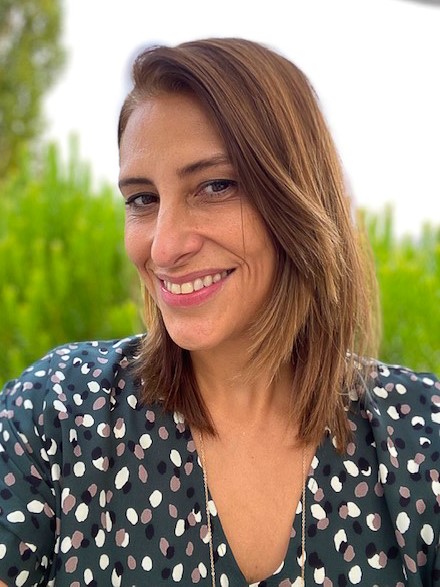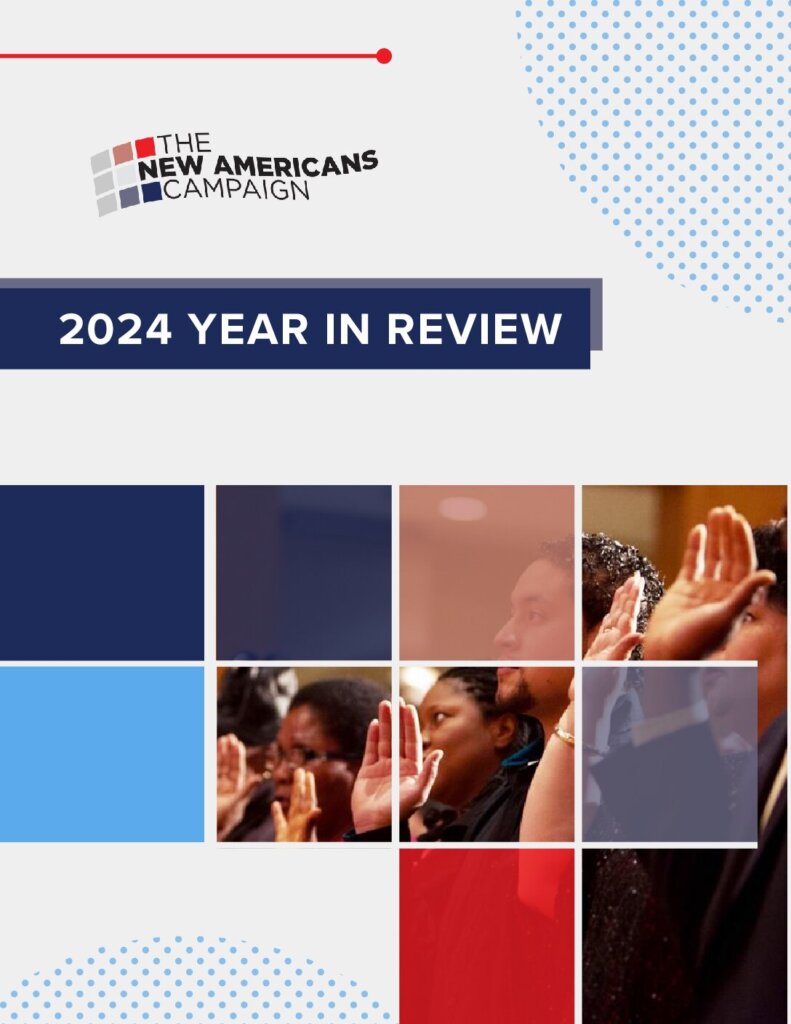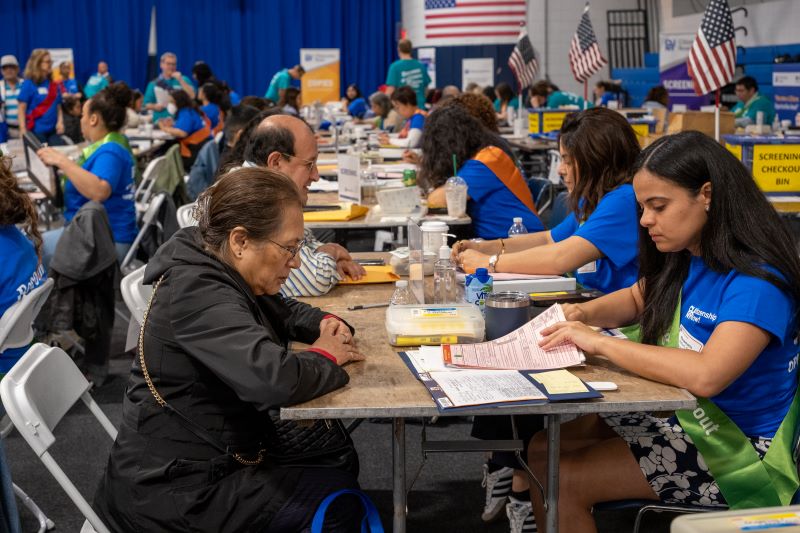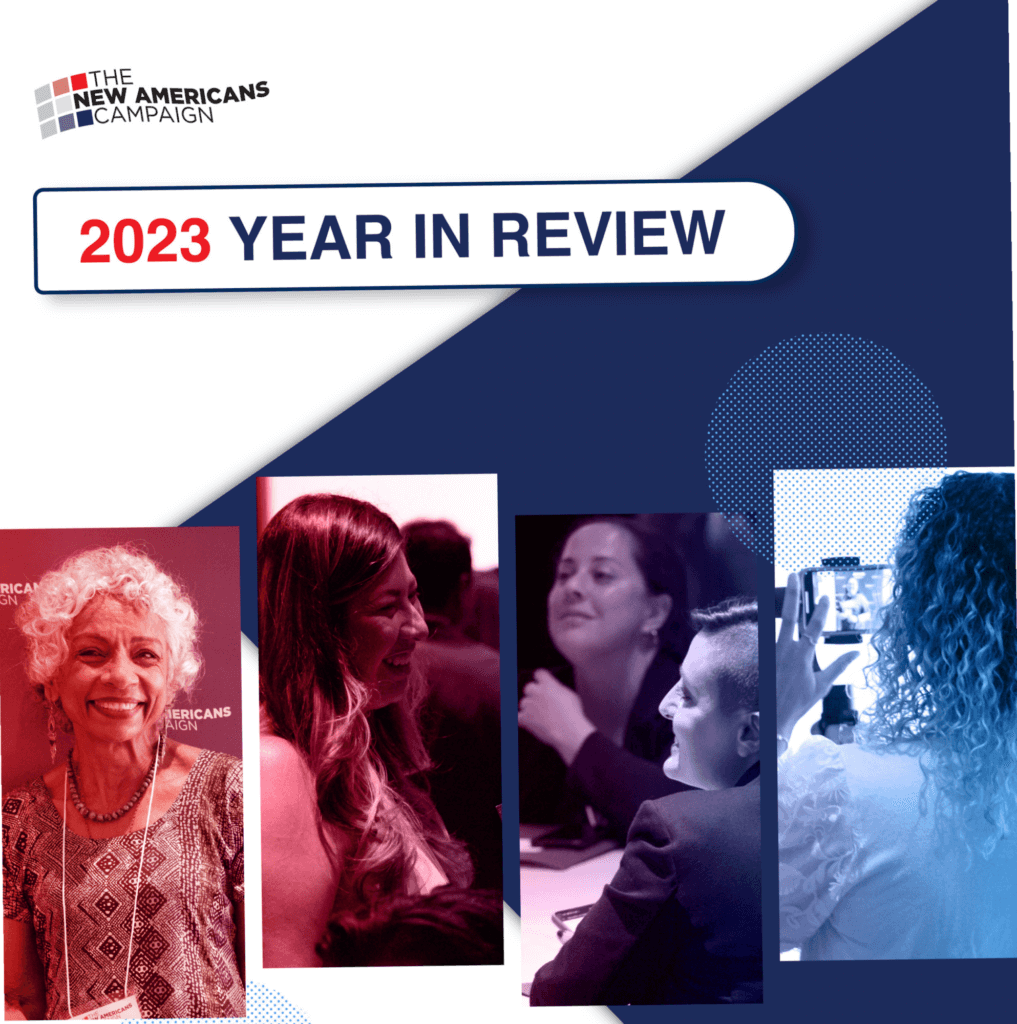Lucia Martel-Dow is Launching the New Americans Campaign’s Next Decade

Explore more
(Photo courtesy of Lucia Martel-Dow)
This past summer the New Americans Campaign celebrated our 10th Anniversary. We gave thanks to our funders and partners and reflected on the hard work and achievement of our amazing naturalization collaborative of more than 200 organizations across the country. We also welcomed our new director Lucia Martel-Dow. We’re excited that Lucia will lead us into our next decade. Before joining the ILRC and the NAC, Lucia served as Director of Immigration and Social Services at Canal Alliance in Marin County, CA, where she oversaw the immigration legal program and the social services department. Lucia has a law degree from Venezuelan Universidad Central, a Master of Laws from University of California, Hastings College of the Law, and a master’s degree in International Law and Relations from the University Complutense of Madrid. We caught up with Lucia to learn more about her and the goals that inspire her work.
What drew you to immigration law originally?
Lucia Martel-Dow: I’m an immigrant, myself, from Venezuela, and immigration is one of the things that I’m passionate about. It’s interesting to me as an attorney, but what really excites me about the work is understanding immigration from a socio-economic perspective as well—how immigrants contribute to a country’s economy, to its culture, and diversity and civic life; and understanding the movements of people, all the different reasons they decide to immigrate. I have also always been passionate about human rights and how it intersects with immigration.
Was there anything in your childhood or your experience growing up in Venezuela that inspired you to champion human rights?
Lucia Martel-Dow: My father was an immigrant, as were my grandparents. They decided to leave Spain during the Franco dictatorship. They were incredibly poor and had to escape a lot of hardship, so they left for Latin America and Venezuela to pursue a better life. I grew up not only being exposed to that journey, but also learning about everything they went through to succeed. I witnessed how, from one generation to the next, immigration can make a big impact. My grandparents did not finish elementary school, but my dad is now a college professor. My grandfather was a 14-year-old unaccompanied minor when he left Europe to pick sugar cane in Cuba. My own life experiences, my family’s history, the culture I was exposed to, and coming from Venezuela informs much of the work that I do. A lot of people don’t know, but Venezuelans are among the top three refugee and displaced groups, including folks from Syria and from Afghanistan. There are millions of Venezuelans around the world right now, and that really touches my heart. It’s another reason I’m passionate about working with immigrants.
Growing up, did you expect one day to put down roots in another country?
(Photo courtesy of Lucia Martel-Dow)
Lucia Martel-Dow: Growing up I was very lucky, very privileged, that my parents exposed me to a lot of travel. I always loved travel. When I was in my first year of law school, I thought that I needed to switch careers and go into international relations. I even applied to become a diplomat with the Venezuelan government. I made it through the application process and the diplomatic academy. I eventually represented Venezuela on some international delegations, like the United Nations Human Rights Council. Unfortunately, for political reasons, I had to leave my job. But luckily, I moved to Spain and found another job in diplomacy, working on immigration issues at an international governmental organization. Ultimately love brought me to the United States. You know love has different ways of tweaking and changing your life!
You’re a naturalized U.S. citizen. What was it like for you to go through the process and take the U.S. citizenship oath?
Lucia Martel-Dow: I remember the moment I received a letter from the USCIS telling me that I was eligible to naturalize, I jumped at the opportunity to fill out the paperwork. I was so excited! I wanted to have a sense of safety and belonging. Fortunately, not only did I have the opportunity to fill out the forms, I also had the financial ability to pay for the process. Still, it was nerve wracking. Even though I understood how the process worked and had a legal background, I was anxious to be in front of an immigration officer as they went through my immigration file. At the same time, I knew that for me it was important to feel like I could participate fully in our democracy and vote.
(Photo courtesy of Assemblymember Levine)
I remember as a child, viewing the United States as a special place of opportunity. But it was also a distant place, and I didn’t know if I was going to fit in. When I became a citizen, it suddenly crystalized that some of those opportunities were going to be available to me. There are many ways to be involved in civic life, even if you are not a U.S. citizen, but becoming naturalized made me feel both safer and that I belong here. I am hoping we can expand that opportunity to millions of other people. I know our country isn’t perfect and we have a lot of work ahead. As a citizen, I take advantage of every opportunity to be involved in our democracy. I participate in a local government commission and I’m a school board member, positions I would not have been able to hold if I wasn’t a U.S. citizen.
What do you bring with you from your experience at the Canal Alliance that will inform your work with the New Americans Campaign?
Lucia Martel-Dow: At the Canal Alliance I was leading an immigration and a social services program and learning so much from the direct service experience. Understanding the socio-economic hardships that low-income communities experience also informs the work that I do. Especially during the pandemic, I saw how people were impacted in an unequal ways. Some people were fearful of the civics test, and we could help them prepare. Others struggled with the application fee, and we understood that paying rent, healthcare, and taking care of children or elderly parents made it difficult to focus on naturalization.
I think moving forward we must focus on trying to remove the barriers that people experience when they apply for citizenship. I envision more collaborations that draw from the ranks of our partners that are doing this work. The simpler we can make the process, the more affordable we can make it, I think it will be better not just for the community that we’re serving, but for the United States as a whole. We have shown, many times over, the contributions that immigrants bring to the country. I’m looking forward to bringing my understanding of the community perspective to bear on what’s possible.
A more positive lesson from the pandemic is that it pushed people to adapt to technology. The New Americans Campaign was already using some technological innovations, so it was able to pivot very quickly. I think it’s admirable how the NAC can be flexible and discover ways to innovate. That is something I want to continue to do and hopefully on a larger scale.
This summer was the 10th anniversary of the New Americans Campaign, and it’s a moment when the NAC is looking at both our past and our future. What’s on your wish list moving forward?
Lucia Martel-Dow: One of my main wishes is that I would like to have the opportunity to get to know people, as soon as possible, so that we can continue building community and creating key collaborations. I want to support our partners, offer tools and accurate information about the process of becoming a U.S. citizen. I want to help anyone wondering, “Am I eligible to become a citizen?” to connect with legal assistance. I hope we can use the lessons we’ve learned during the pandemic to advocate for citizenship and leverage our partnerships and remove barriers to help the NAC continue to naturalize hundreds of thousands more lawful permanent residents.
(Photo courtesy of Lucia Martel-Dow)



